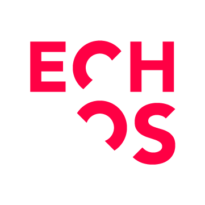Echos is a people-centred innovation laboratory. After working with many clients in the health sector, we have a few pearls of wisdom to share about the future of the health industry. This article aims to share the trends and learnings on innovation in the health sector based on data from Echos- Innovation Lab projects. It also wishes to inspire you, the reader, to reflect, act and innovate.
The New Paradigms
The health sector is at a crossroads; advanced science combined with the intensive use of technology amplifies product offering but, at the same time, pushes medication and treatment costs up.
However, it has been noted in the past few years, amongst innovation forums and in clients’ testimonials, that there is an urgency in making the health industry approach health in a more holistic way.
Treatment options and diagnosis accuracy have increased and made medicine more complex and expensive. The health sector ecosystem englobes different health agents, regulatory bodies and patents, but its central point is still the doctor.
Creating innovation within a complex system such as this is challenging. The “at a crossroads’ moment” happens because the current paradigm of medicine and health sector is based on technologies that can cure diseases and, as a consequence, all efforts are put towards bettering processes and making them more effective.
How Can The Health Sector Innovate By Putting People In The Centre Of Their Process?
When dealing with complex diseases, it is necessary to look beyond the cure. It is important to observe the people affected by the disease and understand how they relate to their condition, their health and their ecosystem in their daily lives.
The way people deal with their bodies, how they integrate with nature and even their experiences in hospitals and clinics are examples of determining factors that help in preventing a disease or of working towards succeeding in treating such disease by a combination of medication intake and process.
What we have been witnessing is “health-promoting speech” coming from the people themselves, as opposed to being advocated only in hospitals or by healthcare professionals.
The “New Health” Principles
- Human-centred: Focuses on facilitating people’s well-being by utilising technology as a medium, not the aim;
- Predictive: Its objective is to care for people by stopping a disease from emerging or by accelerating the curing process;
- Unique: Every patient’s case is different, so personalised products and services when in treatment are a possibility;
- Holistic: It doesn’t only look into the physical health of its patients but also considers environmental, emotional and spiritual factors that can influence the patient’s well-being;
- Decentralised: The idea of “seeking health” stops gravitating around hospitals and doctors giving way to a notion that other health professionals also contribute to people’s well-being.
The Conclusion
More and more companies are developing solutions with the objective of creating healthy culture that is more inclusive, participative and responsive. After all, holistically speaking, health is not considered the antonym of sickness, but freedom for people to lead their lives in whatever way they please.
*This article was translated and edited by Rani Ghazzaoui Luke.
—
If you’d like to start an innovation journey in your company, you can check out our in-house course offerings as well as download for free our Design Thinking toolkit by clicking here.
If you’d like to see the agenda for upcoming courses in your region, visit our website.
If you have a special project and would like to use Echos’ consultancy services, you can send us an email.



